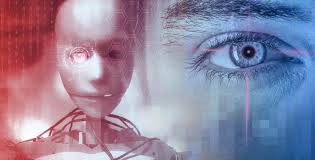
Breaking News
 What They Don't Tell You About Autoimmune Disorders
What They Don't Tell You About Autoimmune Disorders
 Jim Lovell, commander of NASA's Apollo 13 moon mission, dies at 97
Jim Lovell, commander of NASA's Apollo 13 moon mission, dies at 97
 Powerful new oral painkiller blocks signals without sedation or addiction
Powerful new oral painkiller blocks signals without sedation or addiction
 Tesla Gets a Texas Rideshare Network License
Tesla Gets a Texas Rideshare Network License
Top Tech News
 3D printing set to slash nuclear plant build times & costs
3D printing set to slash nuclear plant build times & costs
 You can design the wheels for NASA's next moon vehicle with the 'Rock and Roll Challenge
You can design the wheels for NASA's next moon vehicle with the 'Rock and Roll Challenge
 'Robot skin' beats human reflexes, transforms grip with fabric-powered touch
'Robot skin' beats human reflexes, transforms grip with fabric-powered touch
 World's first nuclear fusion plant being built in US to power Microsoft data centers
World's first nuclear fusion plant being built in US to power Microsoft data centers
 The mitochondria are more than just the "powerhouse of the cell" – they initiate immune...
The mitochondria are more than just the "powerhouse of the cell" – they initiate immune...
 Historic Aviation Engine Advance to Unlock Hypersonic Mach 10 Planes
Historic Aviation Engine Advance to Unlock Hypersonic Mach 10 Planes
 OpenAI CEO Sam Altman Pitches Eyeball-Scanning World ID to Bankers
OpenAI CEO Sam Altman Pitches Eyeball-Scanning World ID to Bankers
 New 3D-printed titanium alloy is stronger and cheaper than ever before
New 3D-printed titanium alloy is stronger and cheaper than ever before
 What is Unitree's new $6,000 humanoid robot good for?
What is Unitree's new $6,000 humanoid robot good for?
 "No CGI, No AI, Pure Engineering": Watch Raw Footage Of 'Star Wars'-Style Speeder
"No CGI, No AI, Pure Engineering": Watch Raw Footage Of 'Star Wars'-Style Speeder
The Threats of AI Come from the State

But they might not be the right people to listen to in this regard, because the threats of AI are fundamentally political. Most scientists and technical experts, however intelligent, do not have training in politics. They generally do not have the mindset to think about politics, with the exception of the regulatory impact to their sector. Nobody expects an inventor to grasp the political and social implications of his invention.
The Blind Spot of AI Threats
This explains why these AI experts usually make rather naïve and unimaginative comments regarding the threats of AI; such as "we need to urge companies to pause AI," "the government definitely needs to involved," "humans can hurt others with AI," we don't want "AI to fall into the wrong hands," because "bad actors" could use AI, etc.



